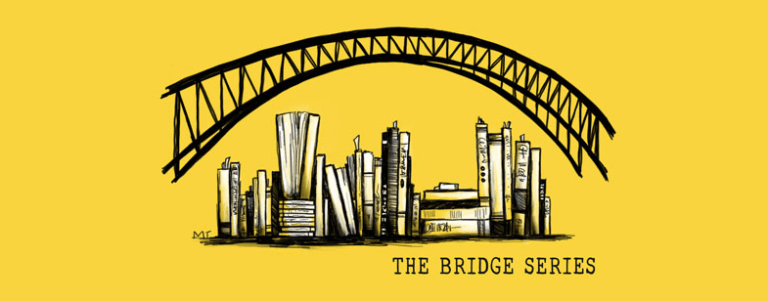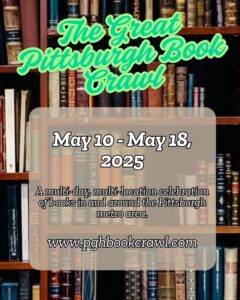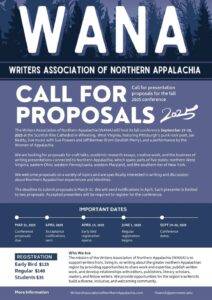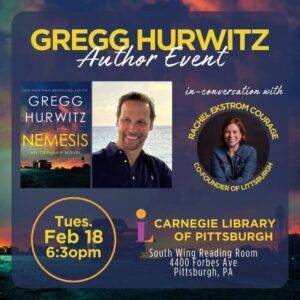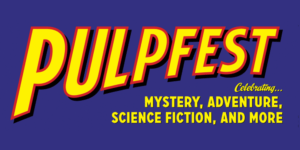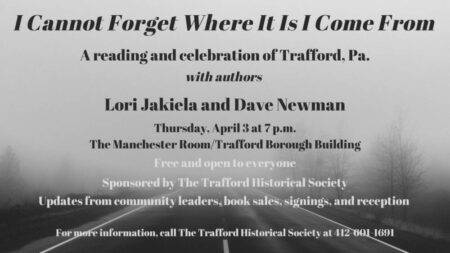The Bridge Series is a new series uniting the Pittsburgh literary and activist communities to raise awareness and funds for local organizations fighting the good fight in these troubling times.
The series convenes the last Wednesday of each month at Brillobox and each installment will feature Pittsburgh’s finest writers and a special guest organization, with proceeds from the evening going directly to that organization.
The April 26th installment of The Bridge Series featuring the writers Deesha Philyaw, Veronica Corpuz, and Sarah Shotland, and the guest organization for the evening Words Without Walls was curated by poet and Bridge board member Jen Ashburn. Jen Ashburn is the author of the full-length poetry collection The Light on the Wall (Main Street Rag, 2016). She has work published in Chiron Review, Grey Sparrow, The MacGuffin, the Pittsburgh Post-Gazette, Whiskey Island and other journals. She holds an MFA in creative writing from Chatham University, where she taught creative writing to inmates in the Allegheny County Jail through Chatham’s Words Without Walls program. Originally from southern Indiana, she spent four years in Japan and greater Asia, and now lives in Pittsburgh.
How does writing relate to activism? How has activism influenced or affected your writing?
Of course, writing as communication has always been entwined with activism, from protest posters to news articles and essays. I’m more interested in the personal stories writing can facilitate. Fiction can tell a very human story that journalism can’t always convey, as can poetry. Poetry can also approach difficult subject matter at a sideways angle, which can lead to new insights.
There’s the question of whether political writing should be literature first, and any political message secondary, or vice-versa. I don’t have the answer, but my personal inclinations as a reader and writer is toward works where political or social meanings arise organically. As a first step, just reading writers outside your own social identity can lead to a form of personal activism as you begin to understand another’s perspective.
What are the goals of The Bridge Series? How does it fit into the local literary scene?
Kris Collins is probably the best person to ask [read that Q&A here – ed], but in a nutshell, it’s a reading series that aims to raise awareness and funds for local organizations engaged in social justice or humanitarian work. I think it’s a very complementary addition to the Pittsburgh literary scene. Not only does it support organizations that are doing great work, it also strives to showcase a wide range of writers and other artists. Last month included visual artist and writer Marcel Lamont Walker, and I wondered how his illustrations would be incorporated. He showed up with slides and gave a great talk about his upbringing and life in Pittsburgh. That’s the sort of thing that’s not usually included in traditional literary readings, and something I hope the Bridge Series continues to provide.
Why did you invite Words Without Walls to be the guest organization this month? Tell us a little about their mission.
Words Without Walls teaches creative writing courses in the Allegheny County Jail, State Correctional Institution of Pittsburgh, and Sojourner House, a residential treatment facility for mothers and their children. This year, they also began the Maenad Fellowship, a new initiative that brought eight women in recovery from drugs and alcohol to Chatham University’s campus for 12 weeks to take part in master classes and readings. I taught with Words Without Walls in the Allegheny County Jail while in graduate school, and saw firsthand how self-expression through writing can help, in numerous and sometimes unexpected ways. I also like that Words Without Walls helps folks tell they own stories, rather than trying to tell their stories for them.
Is there a particular writer, book, or poem that has influenced you as a literary activist that you’d like to shine some light on?
It’s hard to pick just one writer or work, but I did recently read a poem by Wendell Berry titled “Questionnaire”. Berry begins with “How much poison are you willing to eat…” then goes into a series of questions that challenge the reader’s thoughts on morality and culture. I like it in its simplicity, and that it pushes the reader to question his/her values without being overtly pedantic.
What advice would you give to local writers who want to have their voices heard?
The standard advice always applies: keep writing, keep sending your work out, get feedback. I’d also add to come out to events like the Bridge readings and get to know other local writers.
What do you hope the audience will walk away with after this event?
I hope they’ll be introduced to the work of some great writers (Veronica Corpuz, Deesha Philyaw, Sarah Shotland), learn about Words Without Walls, and have a greater understanding of a those who have experienced incarceration or struggle with addiction.
For more about The Bridge Series, check out Littsburgh’s first spotlight on The Bridge Series and Episode 44 of the We’re All Gonna Die podcast (“Bridges of Poetry”).


